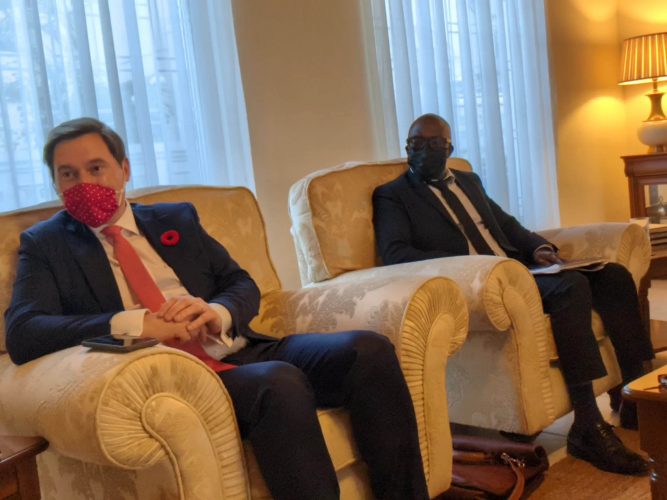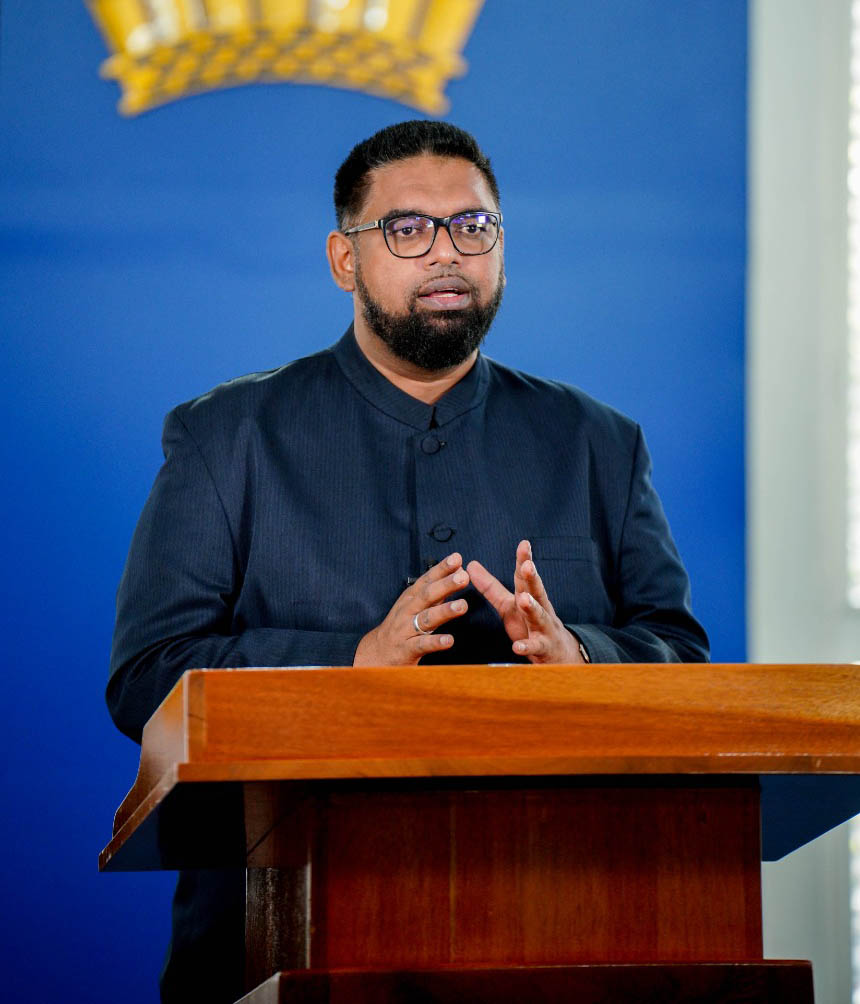Just over five months after the British government had dispatched its Deputy Trade Commissioner for Latin America and the Caribbean, Spencer Mahoney, to engage government officials here on possible avenues for expanded trade and investment relations between the two countries arising out of the dramatic opening up of the country to foreign investment, Guyana’s president, Irfaan Ali, has used his feature address at a Guyana Investment Seminar in London earlier this week to state that the United Kingdom needed to demonstrate greater interest in the investment opportunities that Guyana had to offer.
Asserting that Guyana’s future development trajectory is predicated on the strengthening of traditional sectors and the building of new ones, President Ali said that it was the wish of his administration that investors from the UK become more aggressive in their approach to going after investment opportunities in Guyana.

Stating that his administration was aware that the UK had earmarked millions of pounds that Guyana can access through investment, he said that there appeared to be a distinct lack of aggressiveness on the parts of both the United Kingdom and the European Union in the matter of looking to investment opportunities in Guyana.
President Ali was reported as stating in his address that the success which Chinese investors had realised in finding the Guyana market quicker than its competitors had to do with the fact that “their aggression is far different.”
Discourses surrounding the history of business and trade relations between Guyana and the United Kingdom have arisen time and again with analysts suggesting that over time, Guyana had failed to create a sufficiently robust negotiating infrastructure to secure the best in terms of business, trade, and investment relations between the two countries. One criticism that has continually been levelled at Guyana in that regard is that the country, traditionally lacking in the skills to engage in high-level business negotiations, had deployed its overseas based diplomats, trained mainly in conventional diplomacy, to undertake business-related negotiations and that this approach had largely failed.
Prior to President Ali’s recent pronouncements on possible strengthened UK/Guyana business, the visit here last November by the UK Deputy Trade Commissioner for Latin America and the Caribbean had yielded some upbeat soundings following meetings with a number of government officials including Prime Minister Mark Phillips. Following those engagements, Mahoney had struck a decidedly upbeat note asserting that the message he would take back to the UK was clear. “Guyana,” he said, was “open for business,” the UK official had told the Stabroek Business in an exclusive interview.
In his address to the investment forum, President Ali is reported to have said that the country’s development “is about creating a broad platform for the future; a platform in which we are going to strengthen traditional sectors, make them more competitive… we’re going to go after new sectors.” Contextually, he reportedly outlined the ICT, education, healthcare, and tourism sectors, as areas in which there was room for investment.






